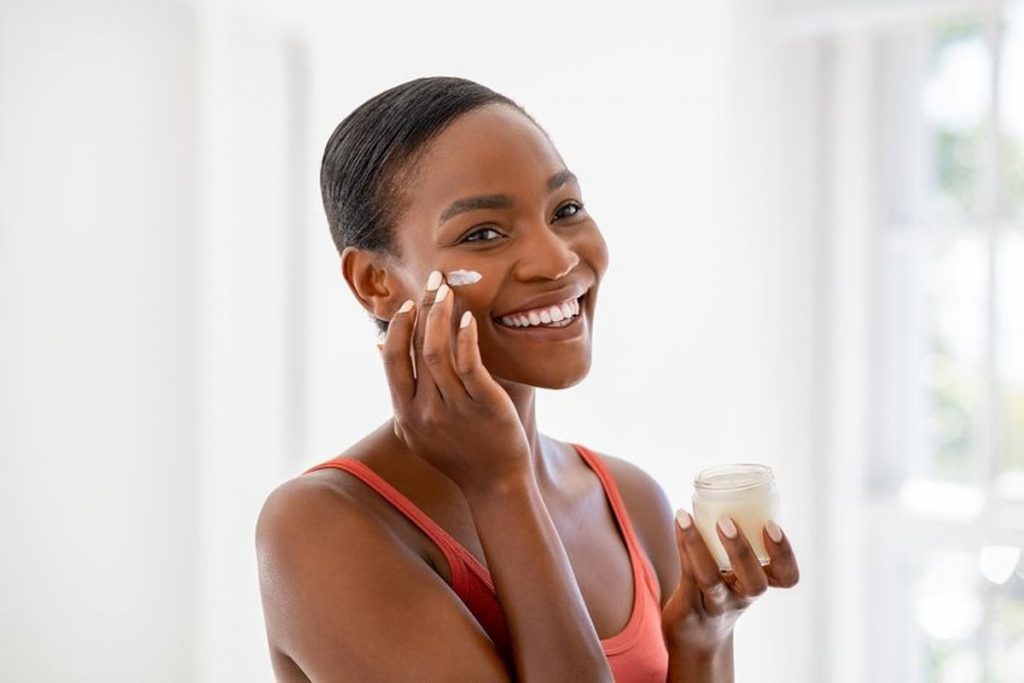
The Differences Between Bakuchiol and Retinol, According to Studies
- Bakuchiol is often called plant-based retinol because it is a natural, gentle alternative that mimics the same skin-renewing benefits.
- Both bakuchiol and retinol are antioxidants that promote cell turnover and collagen production, targeting similar skin concerns, including fine lines and wrinkles, dark spots, sun damage and breakouts.
- Studies have shown that bakuchiol is gentler and better tolerated than retinol while sharing the same ability to reduce aging signs and discoloration.
- Bakuchiol can be applied twice daily, while retinol should only be applied once at night as it breaks down easily in sunlight.
- Unlike retinol, bakuchiol can be used during pregnancy or breastfeeding.
Retinol is an all-time favorite for pretty much all skin concerns. However, because it can be irritating for some, bakuchiol — the so-called retinol alternative — keeps popping up in all sorts of products. But does bakuchiol keeps up with retinol? Short answer: Yes, bakuchiol does pretty much all the hard work without the irritations. However, there are a few differences between retinol and bakuchiol, which you are just about to discover. In this post, we explore bakuchiol vs retinol, two of the trendiest skincare ingredients that tackle hyperpigmentation, pimples, and aging signs at once.
What is retinol
Retinol is a vitamin A derivative that works by encouraging cell turnover, meaning it sloughs off dead cells buildup from the skin’s surface and makes room for new healthy ones. This translates into firmer and bouncier skin, evener tone, and fewer pimples. Besides, retinol also stimulates collagen production, helping retexturize and diminish wrinkles’ appearance, and provides antioxidant protection, offsetting sun damage.[1]
What is bakuchiol
Bakuchiol is a natural extract from the Psoralea corylifolia plant seeds and is often called plant-based retinol. Just like retinol, bakuchiol is an antioxidant that speeds up cell turnover, promoting skin renewal, minimizing fine lines and wrinkles, encouraging healing, and promoting an even-looking complexion.[2][3]
Retinol vs bakuchiol
Both retinol and bakuchiol work by encouraging cell turnover, sloughing off dead cells so that new, healthy ones can replace them. Also, the two have anti-inflammatory and antioxidant activities, promote collagen production, and target similar skin concerns. However, compared to retinol, bakuchiol acts gentler, so it is a better suit for those with problematic skin.
A study by the British Journal of Dermatology actually compared retinol and bakuchiol in a 12-week clinical trial. By the end of the study, researchers found that a 0.5% bakuchiol cream applied twice daily provides similar benefits as a 0.5% retinol cream applied once daily in terms of improving aging signs and reducing skin discoloration. Yet the bakuchiol cream was more tolerable, less irritating, and caused less burning, redness, and drying effects, compared to retinol.[4]
In other words, bakuchiol can be applied as an alternative to retinol by those who want an anti-aging or anti-acne solution without side effects. At the same time, bakuchiol can be used by breastfeeding or pregnant women, unlike retinol which is not recommended in any of these cases. However, it is always better to consult your doctor before adding new skincare products to your routine if you are pregnant or breastfeeding.
Also, compared to retinol, bakuchiol can be mixed with any other skincare ingredient out there. Retinol is vulnerable, so it shouldn’t be combined with AHAs/BHAs, benzoyl peroxide, or vitamin C. On the other hand, you can use bakuchiol with any A-grade active.
Another difference between retinol and bakuchiol is that retinol gets easily deactivated by light, which is not the case for bakuchiol. Because retinol breaks down in sunlight, it hinders its effects, so retinol should be only applied at night. Bakuchiol is not photosensitive, so it can be used AM and PM without worrying about the sun rendering it ineffective.
Can you use retinol and bakuchiol
Yes, you can use retinol and bakuchiol together if you don’t experience irritation. You can use them in the same product, at alternate times, or use a retinol moisturizer and bakuchiol serum or vice-versa.
The takeaway
Given all the above, bakuchiol is indeed more tolerated and gentler than retinol while delivering similar benefits. However, it’s very hard to beat retinol when it has so much supporting evidence for its anti-aging benefits, especially since the studies on bakuchiol are not that abundant.
References
- Mukherjee S, Date A, Patravale V, Korting HC, Roeder A, Weindl G. Retinoids in the treatment of skin aging: an overview of clinical efficacy and safety. Clin Interv Aging. 2006;1(4):327-48. doi: 10.2147/ciia.2006.1.4.327. PMID: 18046911; PMCID: PMC2699641.
- Chaudhuri, Ratan & Bojanowski, Krzysztof. (2014). Bakuchiol: A Retinol-Like Functional Compound Revealed by Gene Expression Profiling & Clinically Proven to have Anti-Aging Effects.
- Adhikari S, Joshi R, Patro BS, Ghanty TK, Chintalwar GJ, Sharma A, Chattopadhyay S, Mukherjee T. Antioxidant activity of bakuchiol: experimental evidences and theoretical treatments on the possible involvement of the terpenoid chain. Chem Res Toxicol. 2003 Sep;16(9):1062-9. doi: 10.1021/tx034082r. PMID: 12971793.
- Dhaliwal S, Rybak I, Ellis SR, Notay M, Trivedi M, Burney W, Vaughn AR, Nguyen M, Reiter P, Bosanac S, Yan H, Foolad N, Sivamani RK. Prospective, randomized, double-blind assessment of topical bakuchiol and retinol for facial photoageing. Br J Dermatol. 2019 Feb;180(2):289-296. doi: 10.1111/bjd.16918. Epub 2018 Sep 21. PMID: 29947134.